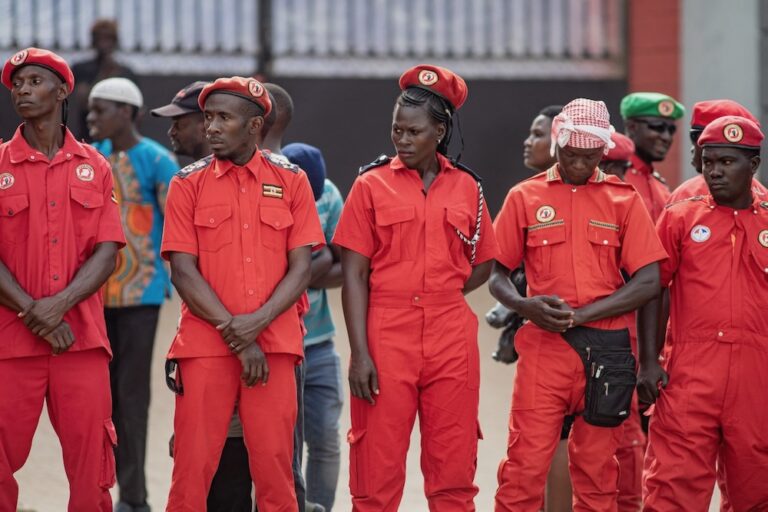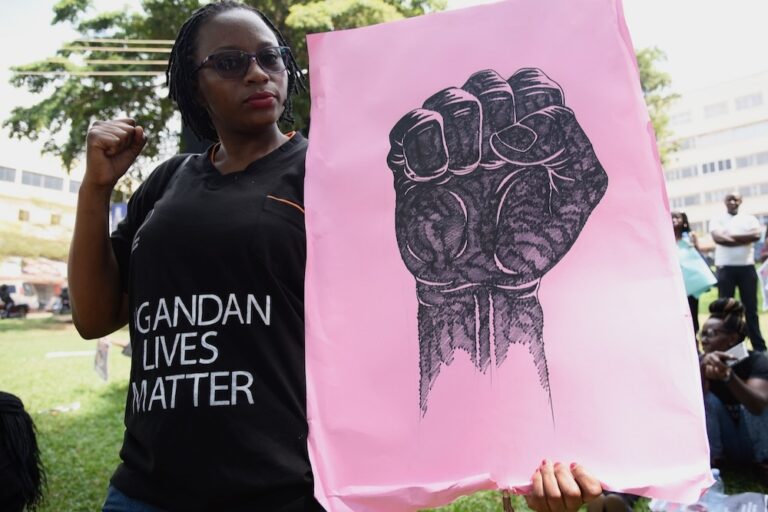The bi-partisan reversal came as a result of pressure and intense lobbying on the part of the Uganda Parliamentary Press Association.
(HRNJ-Uganda/IFEX) – Kampala, 21 March 2012 – The Parliament overturned a decision banning journalists from bringing their electronic devices into the parliamentary press gallery. Last week, MPs rejected a proposal calling for journalists to be permitted to use audio recorders and cameras while covering plenary sessions.
The bi-partisan reversal of the decision was as a result of pressure and intense lobbying on the part of the Uganda Parliamentary Press Association (UPPA). The move saw ministers and members of parliament (MP) from the ruling National Resistance Movement (NRM) join their colleagues in the opposition to support the proposal. The journalists dressed in black and filled up the press gallery of the house.
The motion to rescind the decision was brought by Igara West MP Raphael Magezi who argued that parliament cannot avoid the modernization of media. He said that MPs are well represented when the media use their gadgets like recorders and cameras to accurately quote them. He added that since a section of the media was already airing live proceedings of Parliament, all the others deserved to be free to do the same.
Magezi was supported by the minister of Information, Mary Karoro Okurut, and Adolf Mwesigye of local government, as well as MPs Simon Mulongo, Medard Lubega Sseggona, Bakka Mugabe, JB Mutebi Balikuddembe, Onyango Kakoba and Abdu Katuntu, among others.
The journalists, under the umbrella body of the Uganda Parliamentary Press Association (UPPA) which has over 90 members from different media houses, had asked the Rules and Privileges committee to allow the media to bring their gadgets into the house to capture MPs’ debates and avoid misquotations and possible defamation. However, the house voted to block the proposal.
UPPA President Agnes Nandutu was overjoyed with the decision to rescind the ban and described the achievement as a great victory for the media.
“This is a great victory, but it has not come easily. It took a lot of aggressive lobbying up to the last minute. It’s also an achievement in the country as Uganda becomes one of the few countries to open up its Parliament. I wish to commend my UPPA colleagues who stood firm and the MPs who appreciated the need to open up,” she told HRNJ-Uganda. She cautioned journalists against using this privilege to abuse professional standards.
This decision also brought an end to the blacklisting of MPs who had been targeted for arguing against a proposal to allow the media to cover debates in the House. They included the Deputy Speaker Jacob Oulanyah of the ruling National Resistance Movement (NRM), female MP for Iganga District Olivia Kwagala Kabala (NRM) and Bukooli North’s Bakka Mugabi (NRM).
The house did not, however, rescind the decision barring media from accessing the Parliamentary Appointments Committee that vets presidential nominees, a move which would enable journalists to cover the vetting process of this committee, chaired by the House Speaker Rebecca Kadaga.
HRNJ-Uganda commends all the efforts made by UPPA and MPs to open up the plenary sessions to the media. This will go a long way in holding MPs and government more accountable to the electorate and other development partners. We, however, call on the MPs to ensure that all draconian laws and legislation restrictive to the media are dealt with in order to enhance media freedom in the country,” said HRNJ-Uganda Programme Coordinator Wokulira Ssebaggala.


